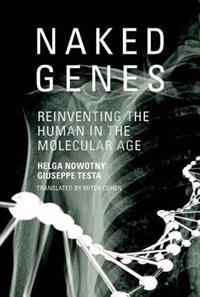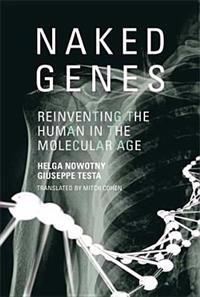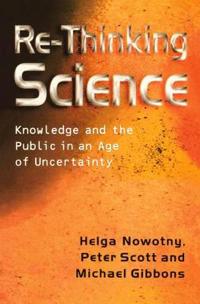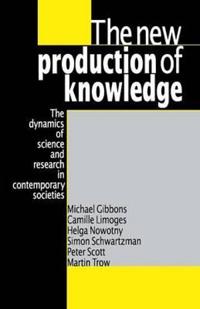Naked Genes (Inbunden)
avHelga Nowotny, Giuseppe Testa
ISBN: 9780262014939 - UTGIVEN: 201103The molecular life sciences are making visible what was once invisible. Yet the more we learn about our own biology, the less we are able to fit this knowledge into an integrated whole. Life is divided into new sub-units and reassembled into new forms: from genes to clones, from embryonic stages to [...]
Insatiable Curiosity (Pocket)
avHelga Nowotny
ISBN: 9780262515108 - UTGIVEN: 2010-09-10An influential scholar in science studies argues that innovation tames the insatiable and limitless curiosity driving science, and that society's acute ambivalence about this is an inevitable legacy of modernity.[...]
Naked Genes (Häftad)
avHelga Nowotny
ISBN: 9780262526760 - UTGIVEN: 2014-09The molecular life sciences are making visible what was once invisible. Yet the more we learn about our own biology, the less we are able to fit this knowledge into an integrated whole. Life is divided into new sub-units and reassembled into new forms: from genes to clones, from embryonic stages to [...]
Time (Häftad)
avHelga Nowotny
ISBN: 9780745618371 - UTGIVEN: 1996-10"Helga Nowotnya s exploration of the forms and meaning of time in contemporary life is panoramic without in any way partaking of the blandness of a survey. From the artificial time of the scientific laboratory to the distinctively modern yearning for onea s own time, she regards every topic in this [...]
Re-Thinking Science: Knowledge and the Public in an Age of Uncertainty (Häftad)
avHelga Nowotny, Peter Scott, Michael Gibbons
ISBN: 9780745626086 - UTGIVEN: 200103This text presents an account of the dynamic relationship between society and science. That line separating society from science is regularly transgressed, and the closer interaction between the two signals the emergence of a new kind of science - contextualized or context-sensitive science.[...]
The New Production of Knowledge (Häftad)
avMichael Gibbons, Camille Limoges, Helga Nowotny
ISBN: 9780803977945 - UTGIVEN: 199407In this provocative and broad-ranging work, the authors argue that the ways in which knowledge - scientific, social and cultural - is produced are undergoing fundamental changes at the end of the twentieth century. They claim that these changes mark a distinct shift into a new mode of knowledge prod[...]









